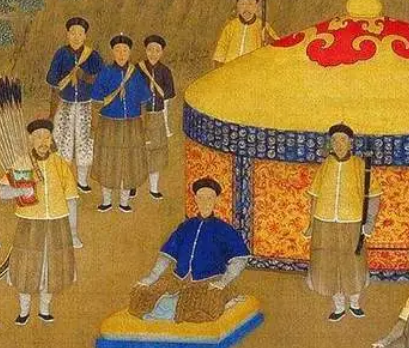Emperor Qianlong was one of the most brilliant emperors in the history of the Qing Dynasty. During his reign, the country's territory expanded, the economy flourished, and the culture flourished. However, after Emperor Qianlong's death, the Qing Dynasty never again produced such a wise ruler. So, what caused this phenomenon?

Firstly, the drawbacks of the political system. During Emperor Qianlong's reign, the political system of the Qing Dynasty had gradually revealed many flaws. Firstly, the concentration of imperial power made the emperor's power too strong, leading to serious corruption in the government. Secondly, the rigidity of the imperial examination system made the selection of officials too focused on literary scholars and neglected the cultivation of practical abilities. These drawbacks became increasingly apparent after Emperor Qianlong, leading to the gradual decline of the Qing Dynasty's politics.
Secondly, the increase in external pressure. During Emperor Qianlong's reign, the international status of the Qing Dynasty was relatively high, and external pressure was small. However, after Emperor Qianlong's death, Western powers gradually rose to power and posed a serious threat to the Qing Dynasty. Especially after the Opium War, the Qing Dynasty was forced to sign unequal treaties, cede territory, and pay compensation for peace. This greatly weakened the national strength of the Qing Dynasty and prevented the emergence of another wise ruler like Emperor Qianlong.
Thirdly, the intensification of internal contradictions. Although the territory of the country expanded during Emperor Qianlong's reign, internal contradictions also intensified. In particular, the conflicts between the Han and minority ethnic groups, as well as between the landlord class and the peasantry. These contradictions became increasingly acute after Emperor Qianlong's death, leading to social unrest and instability in the Qing Dynasty, unable to produce another wise ruler to stabilize the national situation.
Fourthly, the shackles of cultural traditions. Although the Qing Dynasty was economically prosperous during Emperor Qianlong's reign, its cultural traditions were still relatively conservative. This limited the development of the Qing Dynasty to a certain extent. Especially in terms of technology, the Qing Dynasty had always lagged behind Western countries. This made the Qing Dynasty at a clear disadvantage when facing the aggression of Western powers. After Emperor Qianlong's death, the shackles of cultural traditions became increasingly apparent, preventing the emergence of another wise ruler to drive the country's modernization process.
In summary, due to various reasons such as the drawbacks of the political system, the increase in external pressure, the intensification of internal contradictions, and the shackles of cultural traditions, the Qing Dynasty never again produced a wise ruler after Emperor Qianlong. This also reflects from a side perspective that the rise and fall of a dynasty are often closely related to its political system, external environment, internal contradictions, and cultural traditions.
Disclaimer: The above content is sourced from the internet and the copyright belongs to the original author. If there is any infringement of your original copyright, please inform us and we will delete the relevant content as soon as possible.
































